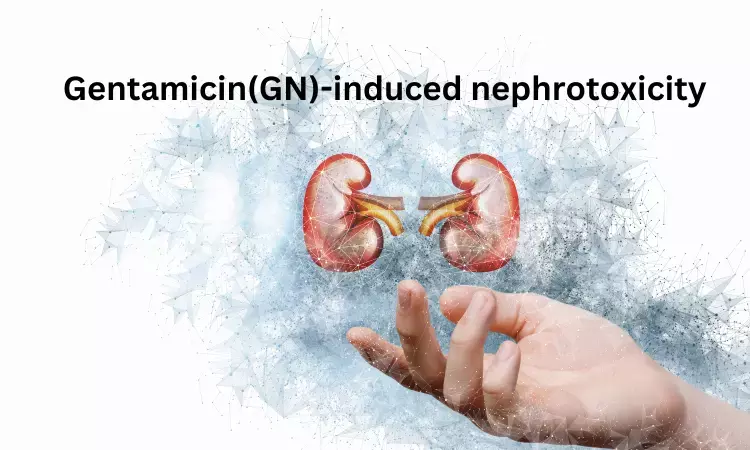- Home
- Medical news & Guidelines
- Anesthesiology
- Cardiology and CTVS
- Critical Care
- Dentistry
- Dermatology
- Diabetes and Endocrinology
- ENT
- Gastroenterology
- Medicine
- Nephrology
- Neurology
- Obstretics-Gynaecology
- Oncology
- Ophthalmology
- Orthopaedics
- Pediatrics-Neonatology
- Psychiatry
- Pulmonology
- Radiology
- Surgery
- Urology
- Laboratory Medicine
- Diet
- Nursing
- Paramedical
- Physiotherapy
- Health news
- Fact Check
- Bone Health Fact Check
- Brain Health Fact Check
- Cancer Related Fact Check
- Child Care Fact Check
- Dental and oral health fact check
- Diabetes and metabolic health fact check
- Diet and Nutrition Fact Check
- Eye and ENT Care Fact Check
- Fitness fact check
- Gut health fact check
- Heart health fact check
- Kidney health fact check
- Medical education fact check
- Men's health fact check
- Respiratory fact check
- Skin and hair care fact check
- Vaccine and Immunization fact check
- Women's health fact check
- AYUSH
- State News
- Andaman and Nicobar Islands
- Andhra Pradesh
- Arunachal Pradesh
- Assam
- Bihar
- Chandigarh
- Chattisgarh
- Dadra and Nagar Haveli
- Daman and Diu
- Delhi
- Goa
- Gujarat
- Haryana
- Himachal Pradesh
- Jammu & Kashmir
- Jharkhand
- Karnataka
- Kerala
- Ladakh
- Lakshadweep
- Madhya Pradesh
- Maharashtra
- Manipur
- Meghalaya
- Mizoram
- Nagaland
- Odisha
- Puducherry
- Punjab
- Rajasthan
- Sikkim
- Tamil Nadu
- Telangana
- Tripura
- Uttar Pradesh
- Uttrakhand
- West Bengal
- Medical Education
- Industry
Vitamin E and silymarin may protct against gentamicin-induced oxidative stress and nephrotoxicity

Researchers have found in a new study that vitamin E and Silymarin show a protective effect on gentamicin-induced oxidative stress and subsequent nephrotoxicity.
Gentamicin(GN)-induced nephrotoxicity (GIN) represents complex entity with a still unclear pathogenesis. However, it is well known that this nephrotoxicity is dose-dependent and leads to functional and morphological changes in the kidney such as elevated blood urea and creatinine level in serum, declined glomerular filtration rate, edema, and acute injury in proximal tubules.
With more usage of GN, a possible connection between GN-induced renal damage, ferroptosis and the overall antioxidant status of the organism could be investigated. Moreover, due to its beneficial effects, GN is still one of the main choices as a therapeutic agent for several diseases, and the possible reduction of its side effects with the application of certain antioxidants will be of important clinical significance.
In this study, Georgiev and team investigated the physiological roles of the antioxidative substances Vitamin E and Silymarin during Gentamycin-induced nephrotoxicity. They mainly focused on the analysis of ferroptosis during this study. They provide useful in-vivo findings, not only for gentamycin-induced nephrotoxicity in general, but also for the effects of Vitamin E and Silymarin treatment. The study findings are published in journal Pharmaceuticals.
The study was conducted with adult male white mice divided into several groups (n = 6). GN nephrotoxicity was induced by the administration of GN 100–200 mg/kg i.p. for 10 days. The control group received only saline. The other groups received either Vitamin E (400 mg/kg p.o.) or Silymarin (200 mg/kg p.o.) applied alone or together with GN for the same period. After the end of the study, the animals were sacrificed, and blood and tissue samples were taken for the assessment of biochemical parameters and antioxidant status, as well as routine and specific for GPX4 histochemistry examination.
The key findings of the study are
• The experimental results indicate that GN-induced nephrotoxicity negatively modulates GPX4 activity and is associated with increased production of ROS and lipid peroxidation.
• The groups treated with antioxidants demonstrated preserved antioxidant status and better GPX4 activity.
• Study reported significantly elevated oxidative stress with accompanying increased production of ROS, decreased redox potential, increased production of cytokines, and evidence for changes in the GPX4 axis and ferroptosis in the GN-treated mice.
• Protection with vitamin E (400 mg/kg p.o.) or silymarin (200 mg/kg p.o.) recovers most of the parameters of inflammation, oxidative stress and ferroptosis.
• The results presented above suggest that inhibition of GN-induced kidney injury affects not only the survival of the cells but also improves their anti-inflammatory status and oxidative balance.
In conclusion, the inhibition of ROS production and especially the suppression of ferroptosis, could be of clinical potential and can be applied as a means of reducing the toxic effects of GN application. Vitamin E and silymarin as ferrostatins could be used as complementary agents against gentamicin-induced side effects and, in particular, its nephrotoxicity.
Reference: Georgiev, T.; Nikolova, G.; Dyakova, V.; Karamalakova, Y.; Georgieva, E.; Ananiev, J.; Ivanov, V.; Hadzhibozheva, P. Vitamin E and Silymarin Reduce Oxidative Tissue Damage during Gentamycin-Induced Nephrotoxicity. Pharmaceuticals 2023, 16, 1365. https://doi.org/10.3390/ph16101365.
MSc. Neuroscience
Niveditha Subramani a MSc. Neuroscience (Faculty of Medicine) graduate from University of Madras, Chennai. Ambitious in Neuro research having worked in motor diseases and neuron apoptosis is interested in more of new upcoming research and their advancement in field of medicine. She has an engrossed skill towards writing and her roles at Medical dialogue include Sr. Content writer. Her news covers new discoveries and updates in field of medicine. She can be reached at editorial@medicaldialogues.in
Dr Kamal Kant Kohli-MBBS, DTCD- a chest specialist with more than 30 years of practice and a flair for writing clinical articles, Dr Kamal Kant Kohli joined Medical Dialogues as a Chief Editor of Medical News. Besides writing articles, as an editor, he proofreads and verifies all the medical content published on Medical Dialogues including those coming from journals, studies,medical conferences,guidelines etc. Email: drkohli@medicaldialogues.in. Contact no. 011-43720751


